bad hand
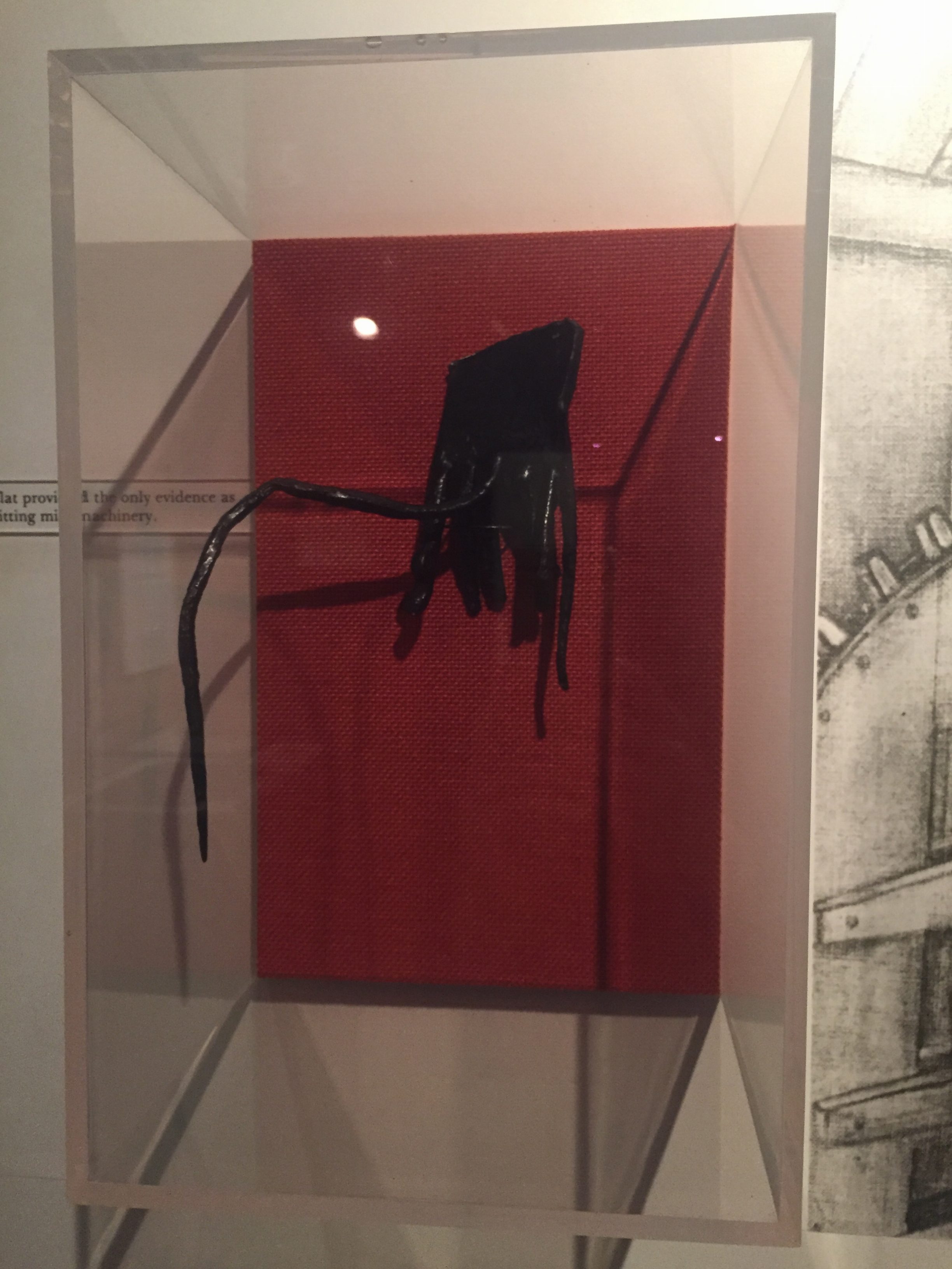
The traveler explores the American Wayside, verifying the contents of a mysterious guide written by a man with whom he shares a likeness and name. Excerpts from ‘Autumn by the Wayside: A Guide to America’s Shitholes’ are italicized. Traveler commentary is written in plain text.

‘Let us reflect, for a moment, on the stubborn existence of the electronic shooting gallery. Let us, in fact, describe in plain terms what an electronic shooting gallery is.
In dormancy, an electronic shooting gallery is a man-sized diorama- a cartoon still-life of the American west riddled with bullseyes and sectioned off from the world by a row of battered guns (firing harmless lasers, no matter the make or model). Fed money, the gallery lights up and the guns activate- unlimited ammo for a limited time (the American bullet buffet). Fired upon, the gallery wakes and responds to the shots with any number of charming reactions: a farmer shouts, a bird squawks in fright, a can launches itself off a fence (and then returns to the fence unharmed, ready for the sharp shooter’s second go-round).
That’s the key to it, reader.
The essence of the electronic shooting gallery is contained in the returning of the can. It is an embodiment of the arcade machine’s manic naivety, an insistence that most actions are blissfully free of consequence. We know, of course, that the opposite is true; that every action is the harbinger of unspeakable consequence. We know this, even if it seems we don’t.
This instinctual knowledge is why the subversion at ‘The Nice House’ provokes such visceral reaction in those that play its game.’
‘The Nice House’ is situated like a lost window at the end of a short corridor to the bathrooms of a no-name convenience store. The window looks into a very normal living room where the mock-up of a nuclear family pays careful attention to a blank television screen. It’s strikingly different than your run-of-the-mill western gallery, with the exception of the guns which are, in turn, strikingly out of place.
I hesitate with a quarter in my palm. It’s been my experience that engaging a thing that is otherwise inactive opens one up to blame for what occurs in its waking and I have a hunch that this is a thing made to sow regret. I know, too, that I will play the game eventually and the arrival of several other interested parties pushes me over the edge. The coin drops and the TV clicks on to a news segment regarding a string of murders. Dozens of red targets shine to life in the living room.
With expectant eyes on my back, I pick up a gun and begin the awful charade.
-traveler
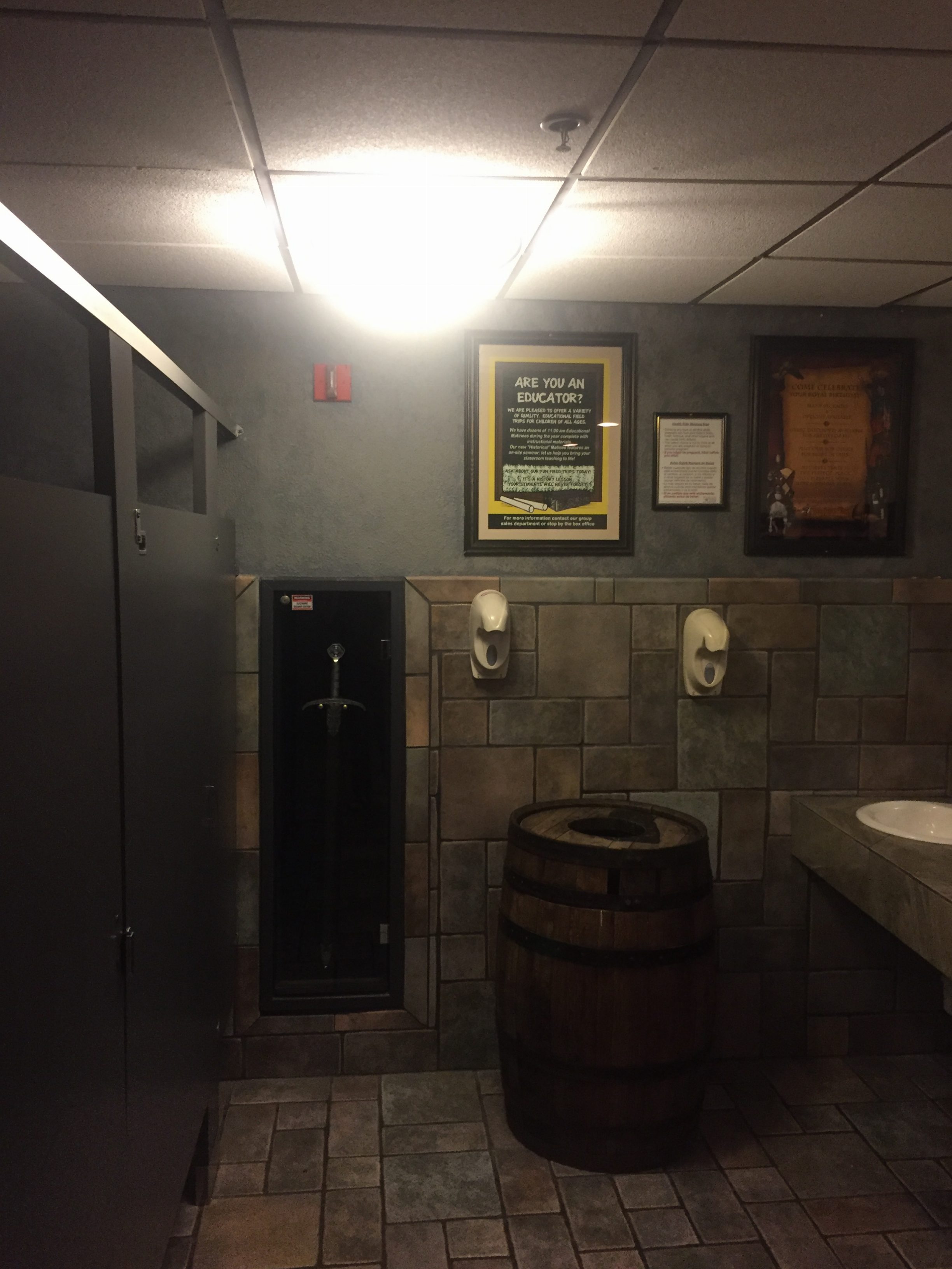
It’s rare that I choose not to pull off the highway for some oddity that might exist there. Much of the time it’s mundane- the artwork of an off-season farmer or the shrine of some unnamed enthusiast. More than once I’ve found an entry for Shitholes that may have otherwise gone overlooked, that had gone suspiciously overlooked, in fact (my certainty that the book is changing grows with the thing itself, now a paperback tome that drags on my shoulders). The pleasure of making these impromptu stops has ceded to necessity over this long trip. Pleasure is ceding generally, I’m afraid, like the brisk nights of late summer give way early to the fall.
Considering this compulsion, it’s strange that I exit outer Greenville (a detour for gas) and spot a statue across the median- the statue of a man looking off in the direction of the sunset (or, because it’s morning, where the sunset will be). Stranger still that the man is borne out of dirt, with little suggestion of a foundation to hold him in place.
I run across the highway, though there is not a car in sight.
‘There has always been a statue outside of Greenville, Ohio, the unassuming shape of a man with his back to the road and his-’
The statue shifts and I jump back, dropping the already-battered copy of Autumn by the Wayside in the gravel. Its pages curl in guilty smiles.
The statue is not a statue at all, but a painted man. A cardboard plaque at his feet fills in the rest, or, if not the rest, then some:
“ACTOR DONATED BY THE GREENVILLE LIVING STATUES TO REMEMBER THAT WHICH INSPIRED SO MANY OF US.”
The statue, the man, breathes heavily and leans away when I stoop to pick up the fallen book. People can be cruel, I suppose. He’s right to be on the defensive.
‘There has always been a statue outside of Greenville, Ohio, the unassuming shape of a man with his back to the road and his eyes set on the horizon.
Or, that’s what is said by the few people who claim to remember.
In a span of time that has been narrowed to the last 50 years, the original statue was stolen and a local group of ‘living statues’ has stepped in to faithfully fill the absence. So swift were they in taking to this monumental task nobody is sure when the statue was replaced or how long the ‘Greenville Living Statues’ have paid their strange, silent tribute.
Strange because the ‘Greenville Living Statues’ don’t seem to exist outside of this task. Strange because only one actor seems to have been photographed all these long years. Strange, too, because nobody has witnessed a changing of the guard despite the occasional webcam project or marathon stakeout. The statue is flesh, this has been proven many times and many ways, but the humanity of it has been called into question numerous times.
The children of Greenville tell the story of a statue that was granted life it did not want (or could not comprehend). Their explanation is as good as any that has been put forth previous to this author’s visit.’
It hurts me to watch the ‘statue;’ it seems to strain under the pressure of my gaze. It struggles to remain still, holding its breath for long moments and quietly heaving the next. Its eyes creep toward mine and quickly turn back to the field before us.
It’s a strange world and people keep strange hobbies. I’ve learned not to judge, but there is a certain pity I feel for those, like myself, who find themselves so consumed.
-traveler
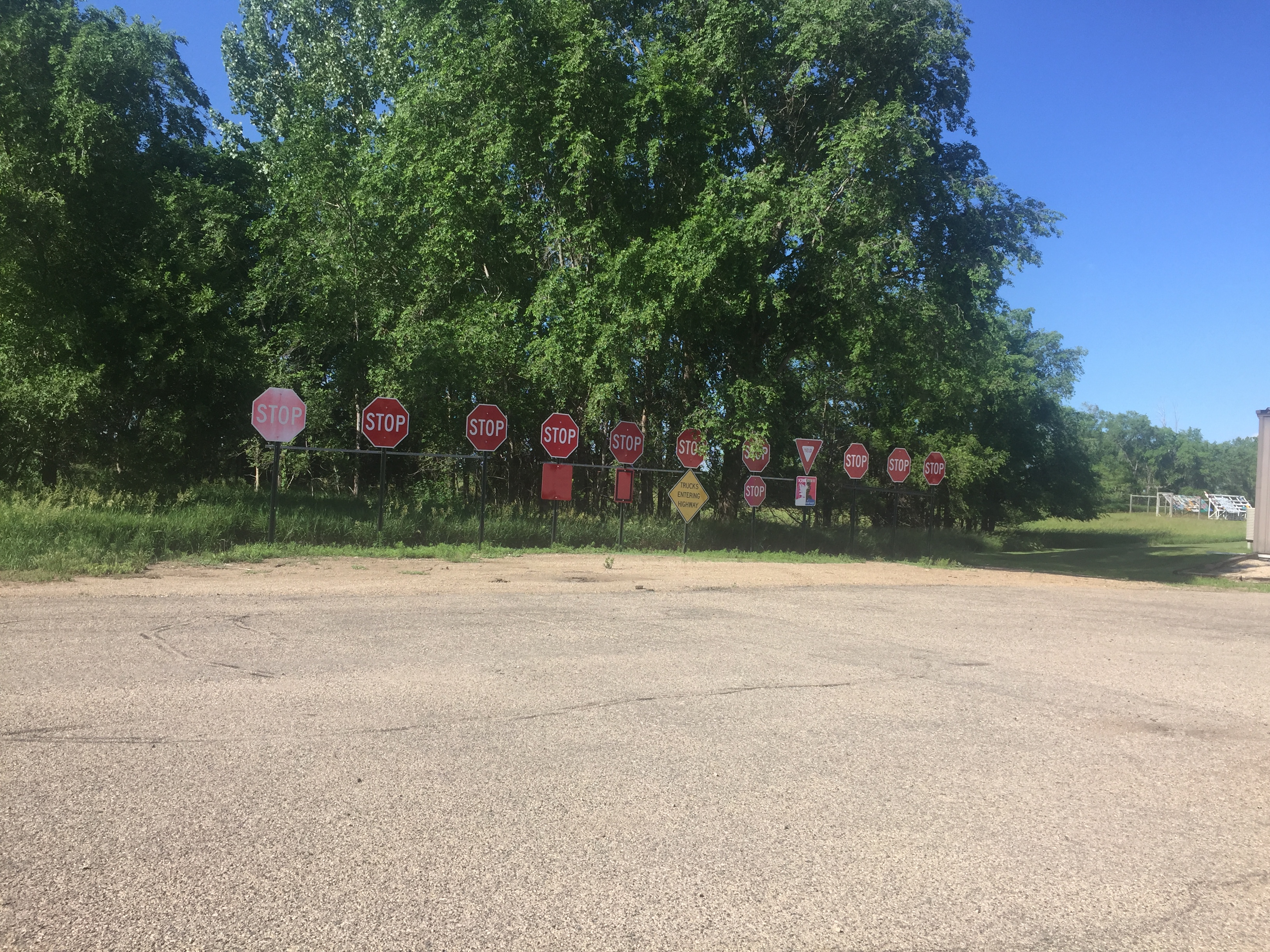
Something in the bike starts to grind just 20 miles out of Missouri. It’s nothing ugly at the outset, but I check Shitholes for the nearest likely pull-off and find a scene of autumn that has persisted well into the summer months.
A grove of dead trees stands at the border, tormented (and made greener) by thick ropes of manicured ivy. Clouds hesitate in the sky above, churning out a pink-tinged storm that looks like the underside of a sea creature. Two women toil in the grove with a hickey bar and a long piece of rusted metal. Together, they prop up the branch of something that could be an oak.
‘Maria Vasquez, owner of ‘Cold Grove,’ carefully avoids questions about her mid-west installation. Her acreage is thick with extinct trees- dead, of course, or they wouldn’t be extinct- held up and together with conspicuous pieces of metal and constant, obsessive maintenance by those in her employ. The sources of the unprocessed specimens is a mystery- the trees themselves are unlabeled and have only undergone amateur identification. The gates of ‘Cold Grove’ are opened inconsistently and trespassers face prosecution with an infamous zeal. It’s not friendly enough to be an educational center and it lacks the careful whimsy of art.
Former ‘Grove’ employee, Richard Denner, has famously (where fame is relative) accused Vasquez of occult motivations. ‘Cold Grove,’ he claims, has been erected to attract the ghosts of things long dead. Like columbine, which can be propagated as an invitation to humming birds, ‘Cold Grove’ requires no explanation because it is the means to an end and not the end itself. All said, there is evidence that Denner’s departure from the ‘Grove’ was an unpleasant one and he has since proved himself to be a man of little relevance.’
Finding the gates to ‘Cold Grove’ are open, I shake the bike a few times and leave with the vague idea that it might sort itself out over the duration of a walk. Inside, I see the women across the ‘Grove’ notice me and I pretend not to see them, taking on the guise of a non-intrusive passerby.
Despite care and rounded metals, the trees chafe at their structures, splintering and peeling where the wind has encouraged post-life movement. Something, rain probably (or wooden ennui) has led much of the grove to weep, creating dark, dripping stains where they bend in their death-permanent poses. A majority of their number stand like modern palm trees, great, barren stalks, and each is as cold and as hard as stone.
The trunk of one tree rattles as I pass; its structure buzzes under my fingertips. The head of a boring insect emerges for a split second, just at eye level, before retreating into the dark of the wood. The skin of the tree shifts, then, as a thousand tunnels fill with a thousand heads like the last. They wait and seem to watch me, clicking under insectile breaths.
“Grove’s closed!” one of the women shouts, and I skitter backward for fear of getting caught in a swarm.
But they have gone and the tree is silent.
Twenty miles out of ‘Cold Grove’ the bike makes a sound like an old woman’s cough and the grinding clears.
-traveler
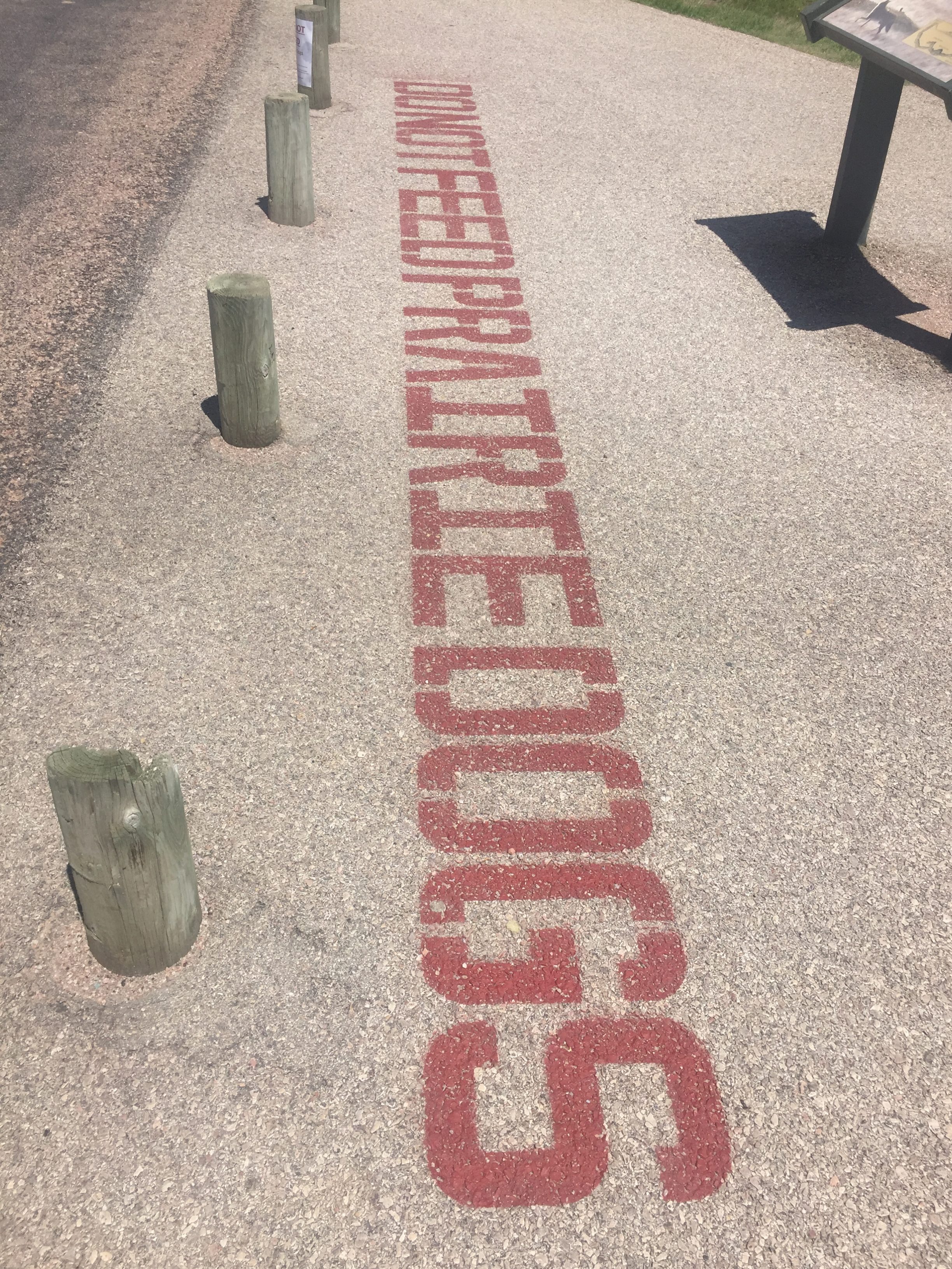
A day passes in which I am pursued by a parade through a small, uninteresting town. The treads of the bike gum up with candy and I weave through crowds of adult men on small tricycles. Each empty road leads me back to the long line of people marching through the streets. They wave from the sidewalks and I wave back, my face a rictus under the helmet, a taut smile that says ‘I’m not supposed to be here but I’m doing the best I can.’
-traveler
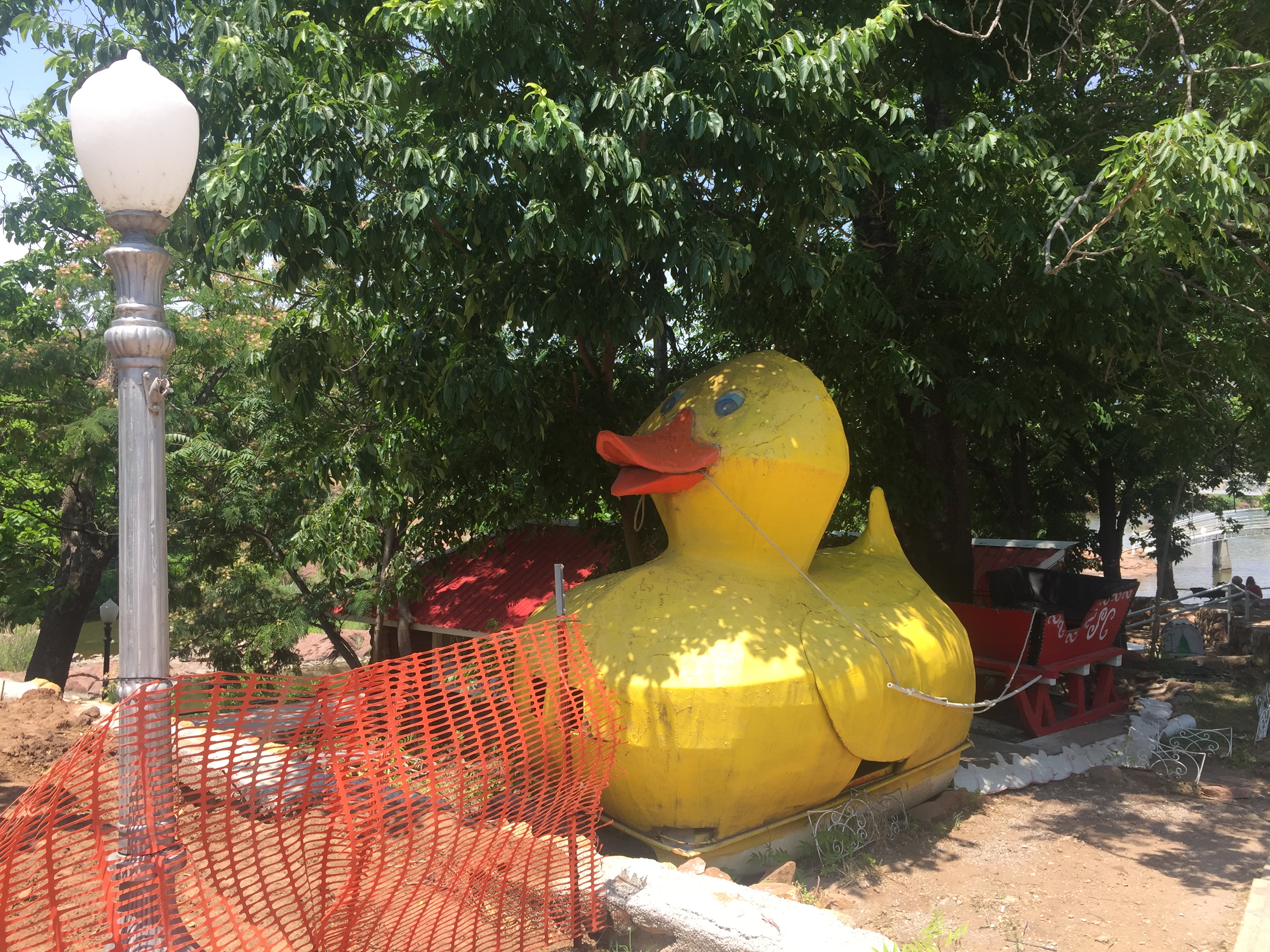
At the suggestion of Shitholes, I spend the morning on a park bench near ‘The Gravity Well.’ A family arrives shortly after I do, the first of many. The kids toss things into the ‘Well,’ scouring the forest for rocks and debris. They take turns throwing their finds over the mouth and laughing as it all inexplicably b-lines into the dark. The parents, two men, pretend to be less impressed than they are. They quietly marvel at the silence of the ‘Well,’ how the rocks rarely even clatter against the side on the way down. The children are given coins to buy wishes. An older boy is scolded for throwing an empty bottle in.
“That’s polluting,” one of the men says, “That won’t break down till you’re an old man.”
The boy says the same about the coins and the family leaves before the argument concludes.
‘The Gravity Well’ does not change in the interim.
A woman arrives later, on her own. She’s looking cautiously over the edge when a ball of bones and feathers screeches past her head and into the ground.
“Did you see that?” she asks me.
“Pretty grim,” I tell her.
She takes a picture of the ‘Well’ with her phone and looks disappointed at the result. She leaves, like the others.
How high up, I wonder, was that bird? It must have felt safe until it began to fall. Does a bird know enough to blame itself for an accident like that?
A man arrives and does nothing to hide his amazement. He does the opposite, even.
“This is crazy, right?” he asks me, “Like, why aren’t we doing something about this? Why aren’t there papers written about this? Why hasn’t someone figured out a way to harness this energy?”
I shrug and put on a face of polite bafflement.
“The world is fucking crazy,” he continues, “This thing is fucking crazy,” he adds.
Another man arrives in the meantime, backing his truck up in the lot. The man that steps from the cab could be a farmer or a meth cook, a toss-up as far as I’m concerned. He pulls down the tailgate and slings a heavy sack onto his shoulder, an assortment of garbage by the look and smell.
The situation dons on the first man as the second approaches.
“You can’t do that!” he says, his disbelief shifting tone, “This isn’t a fucking dump!”
“Is if I dump things here.”
“I’ll call the police! I’ve got your license plate number.”
“Call’em.”
“This is ridiculous.”
The second man tips the bag into the ‘Well’ without another word and the first scowls.
“That was ridiculous,” he says, as the truck pulls away. He shakes his head and I nod.
Several minutes later the man is holding his arm out over the mouth of ‘The Gravity Well,’ leaning over the short protective barrier installed there. His fingers creep across its radius until his hand and arm suddenly drop and he stumbles backward, smacking his thin wrist on the stone edge in the process. He looks at his swollen hand and he looks at me with the face of a man that is deeply disturbed by what he felt, by a close brush with the inevitable.
He leaves without another word.
I leave a short time later, frightened by the man’s fear and unwilling to perform tests of my own.
‘‘The Gravity Well’ is another of the Earth’s overlooked miracles, too strange to truly comprehend. With no sign or description available (and only the barest information to be found online) most visitors are left to assume that science can explain the existence of ‘The Gravity Well,’ (it has yet to do so). Local legend says the ‘Well’ will occasionally reverse and spill forth the secret disposals of the previous generation, though this occurs on the scale of centuries and long after the pertinence of anything contained therein has expired.’
-traveler
© 2024 · Dylan Bach // Sun Logo - Jessica Hayworth